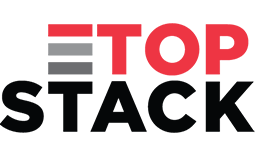Learn How to Answer the Interview Question “Tell Me About a Time You Demonstrated Leadership Skills”

Interviewing is always hard, but it’s the behavioral questions that are probably the most challenging. Behavioral questions usually start with “Tell me about a time,” and they require you to tell your story to illustrate a relevant job skill. One of the most common behavioral questions is ones that require you to discuss past behaviors that illustrated leadership skills. Here’s how to answer these types of questions, even if you haven’t been a manager in a prior role.
How to Illustrate Leadership in an Interview
It’s difficult to answer the question, “Tell me about a time when you demonstrated leadership skills,” if you haven’t been in an official leadership position. However, no matter the job, you can demonstrate leadership skills. The trick is to recognize these skills in yourself and concisely find a story to share that shows when you took the initiative to help your team. But where do you start sifting through all of your work experiences to find the best story to share with an employer?
- Step 1 — Define what leadership is to you.
Leadership means different things to different people, so start by trying to figure out what it means to you. There are all kinds of ways to illustrate leadership. You can show that you’re a leader by decisively determining what skills you think a leader has. Do this by reflecting on what you admire in leaders and what qualities you embody that is similar. Try to make a list of those characteristics and then move to step two: Roadmap a situation from a prior role where you illustrated those qualities. - Step 2 — Roadmap the right story.
When considering what leadership story to share, try thinking about the role itself and the company. Are there leadership skills that would be more important to the job? Does the project require working with cross-functional teams? In past jobs, have you lead these teams or help facilitate communication between different employees? Maybe you took the initiative somewhere other than work, perhaps at a volunteer event or other function. The point here is that you don’t need to have “leader” in your job title to be one. - Step 3 — Structure and practice your answer.
Once you’ve figured out which story to share in answer to the question, “Tell Me About a Time You Demonstrated Leadership Skills,” you can use the STAR model to help guide your response:- Situation — What was the situation you were in when you illustrated leadership skills. Outline the details as clearly and concisely as possible.
- Task — What was your responsibility during this situation?
- Action — What did you do to make the result happen? What action did you take?
- Results — Finally, what happened? What were the results of your actions? What did you learn as a result?
Questions about leadership skills are almost inevitable in every job interview. It’s very common because organizations tend to gravitate toward employees that illustrate these traits. Preparing now for these types of questions can help you succeed. Contact Top Stack today to find the best opportunities to suit your skills.











